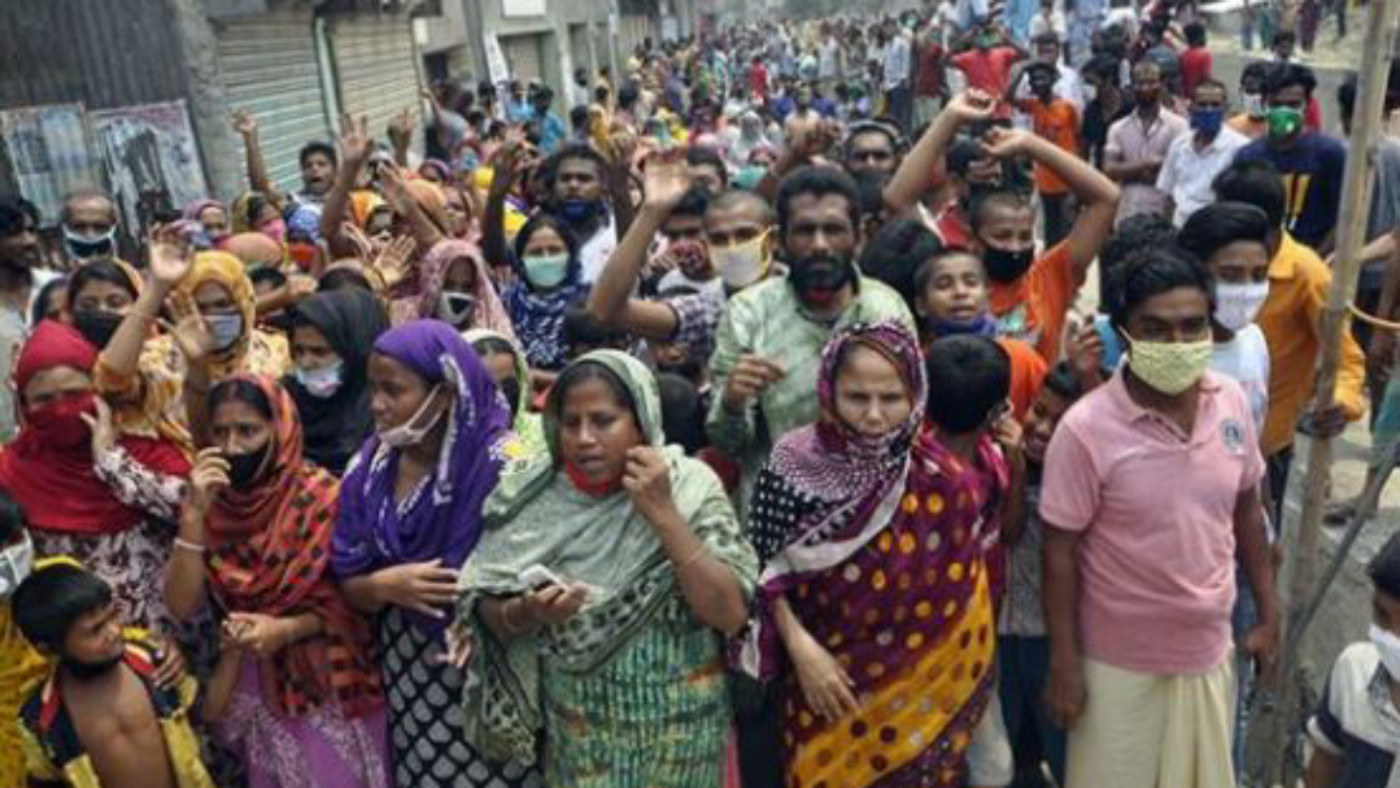
Part of a series on community action on COVID-19
Photo: Poor take protests to the street in Narayanganj, Bangladesh
Lock downs devastate incomes of the poor, particularly day laborers, returning migrant laborers, laid-off and informal sector service workers. Even though farming is considered essential, transport and closed markets reduce farmer incomes. Growing poverty reduces demand for products and service even for those working.
Holes in safety nets. Even where safety net programs exist, lists of eligible participants may not include the “newly poor.”
“Top-down, centrally managed systems of power can end up creating havoc due to the lack of their understanding of local communities.”
Samer Araabi, SSIR
Community leaders – particularly women – know who needs help. Well-organized communities can take accountability for helping identify and bring relief to those suffering the most. They can either connect those people to official services, or mobilize local resources.
Shift The Power. Community philanthropy “is the process of gaining the support of community members, leveraging community resources, and determining the use of external resources in that community to better address challenges or to improve the quality of life in a community.”
Halt exploitation – Strengthen Community Trust. There are always unscrupulous political or extremist actors who will seize on a crisis to drive a wedge between groups or scapegoat segments of the community. Community leaders must take a powerful stand for social solidarity in the face of these insidious threats.
Hold governments to account. The World Bank and IMF are making enormous concessional funds available — civil society be prepared to fight to ensure that these funds reach the people who need them. International civil society must ensure donor funds reach the poor and that, where possible, debts by the lowest income countries are forgiven rather than merely delayed.


